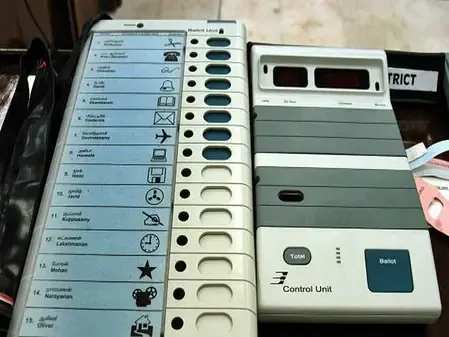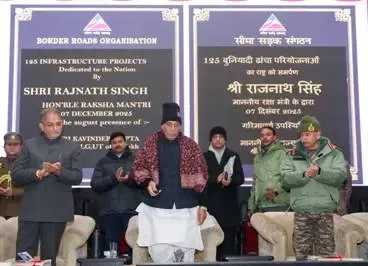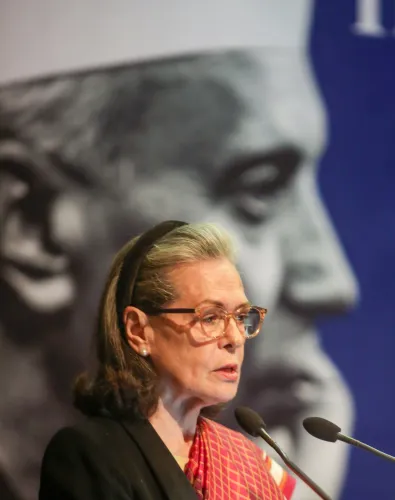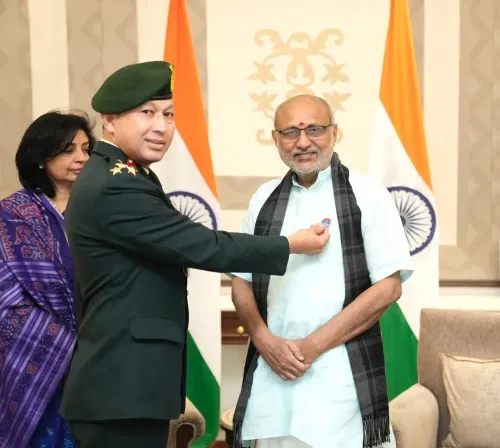How Are Political Dynamics Changing in Bihar Amidst Grand Alliance Turmoil and NDA Cohesion?

Synopsis
Key Takeaways
- Grand Alliance faces significant internal conflicts.
- NDA demonstrates strong unity and organization.
- Overlapping nominations could split the Opposition vote.
- The outcome hinges on the strength of alliances.
- Dissatisfaction among smaller allies is rising.
Patna, Oct 21 (NationPress) Following the nomination process for the upcoming Bihar Assembly elections, the political landscape in the state has experienced a significant transformation.
The final scenario unveiled after the withdrawal deadline presents a complex and fascinating situation.
The seat-sharing agreement among the Grand Alliance (Opposition INDIA bloc) has publicly revealed profound internal fractures.
With 254 candidates from the alliance vying for 243 seats, ongoing conflicts among allies are evident.
In stark contrast, the National Democratic Alliance (NDA) has demonstrated impressive cohesion.
Political analysts characterize this election not just as a quest for power but as a crucial examination of alliance robustness and unity.
Many speculate that the Opposition's disunity might offer the NDA a strategic advantage.
Within the Grand Alliance, the Rashtriya Janata Dal (RJD) is contesting 143 seats, with Congress fielding candidates for 61, Left parties for 33, the Vikassheel Insaan Party (VIP) for 15, and the Indian Inclusive Party (IIP) led by I.P. Gupta contesting three Assembly seats.
However, the total of 255 candidates surpasses the Assembly's 243-seat limit, indicating ongoing discord.
With 255 candidates in the fray, political experts suggest that allies will compete against one another in approximately 11 constituencies, which could fragment the Opposition vote and bolster the NDA’s standing.
The RJD, under the leadership of Tejashwi Yadav, continues to be the leading force in the alliance, contesting 143 seats, or nearly 59 percent of the total.
The party's strategy heavily relies on its traditional Muslim–Yadav vote base.
However, discontent among smaller allies is becoming increasingly visible.
In areas like Gaya, Munger, and Siwan, local Congress members have revolted against RJD candidates, leading to anticipated friendly competitions in various constituencies.
The Congress, assigned 61 seats—down from the 70 it contested in 2020—faces escalating unrest.
Local leaders from Gaya, Banka, Munger, and Siwan have protested the seat distribution, with some opting for independent nominations after being denied tickets.
In the Munger district, a senior Congress leader opposed the official RJD candidate, further illustrating the alliance's deep-rooted discontent.
The Left Front, consisting of CPI (8 seats), CPI-ML (21), and CPM (4), maintains a strong foothold in regions such as Ara, Jehanabad, Siwan, and Gaya, where labor and youth issues are prevalent.
The Left, which secured 16 seats in 2020, is banking on its worker-youth agenda this election.
Nevertheless, internal disputes with RJD and Congress candidates in certain constituencies may hinder this ideological momentum.
Mukesh Sahani's VIP has been allocated 15 seats.
Sahani, a prominent voice for the Nishad community, previously demanded the Deputy Chief Minister position in Bihar, causing friction within the INDIA bloc.
At a public gathering, Sahani declared, "The Nishad brothers are dissatisfied with the NDA; we will serve as their voice."
However, political analysts indicate that VIP's influence is primarily confined to north Bihar, and internal disputes with RJD candidates in several constituencies reveal additional fractures within the INDIA bloc.
Meanwhile, IIP leader I.P. Gupta, who has been granted three seats, asserted, "We will fight for justice; a small beginning will lead to a big victory."
The Grand Alliance is experiencing direct contests among its allies in at least 11 constituencies, including Kahalgaon, Vaishali, Bachhwara, Narkatiaganj, Gaura Bauram, Rajapakar, Rosera, Bihar Sharif, Warisaliganj, Darbhanga, and Katihar.
Such overlapping nominations raise concerns about coordination and strategy within the Opposition INDIA bloc.
Conversely, the NDA—comprising BJP (101 seats), JD-U (101), Lok Janshakti Party (Ram Vilas) (29), Hindustani Awam Morcha (six), and Upendra Kushwaha's Rashtriya Lok Morcha (six)—has finalized its seat-sharing arrangement with relative ease.
Although the NDA did not host a joint press conference, all allies promptly began announcing their candidates.
Chief Minister Nitish Kumar initiated the campaign, highlighting development and stability as key themes.
Despite initial dissent, the BJP successfully persuaded most rebels to withdraw before the nomination deadline.
Union Home Minister Amit Shah personally intervened to restore order.
Leaders such as Shishir Kumar (Patna Sahib), Arjit Shashwat (Bhagalpur), Aniket Kumar (Gopalganj), and Amarendra Pandey (Buxar) withdrew their independent nominations, minimizing the risk of vote division.
This vote consolidation underscores the NDA's organizational discipline.










